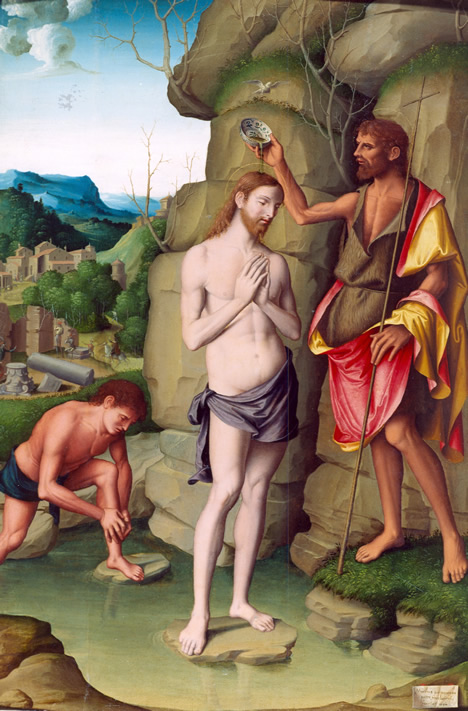 The Feast of the Baptism of the Lord marks the end of the Church’s celebration of Christmas and the start of the short period of Ordinary Time that runs to Ash Wednesday and the start of Lent. Since the early days of the Church’s history this feast was important for two reasons. First because the voice of the Father reveals Jesus to be His Son; “You are my Son, the Beloved, my favour rests on you” (Mark 1: 11). Secondly, because the Holy Spirit, in the form of a dive, descends on Jesus. This was seen as the real anointing and the appointment of Jesus as the Messiah. Both “Christ” and “Messiah” come from words meaning “the anointed one”, the first from Greek and the second from Hebrew. This feast is seen as the start of Jesus’ public life and ministry.
The Feast of the Baptism of the Lord marks the end of the Church’s celebration of Christmas and the start of the short period of Ordinary Time that runs to Ash Wednesday and the start of Lent. Since the early days of the Church’s history this feast was important for two reasons. First because the voice of the Father reveals Jesus to be His Son; “You are my Son, the Beloved, my favour rests on you” (Mark 1: 11). Secondly, because the Holy Spirit, in the form of a dive, descends on Jesus. This was seen as the real anointing and the appointment of Jesus as the Messiah. Both “Christ” and “Messiah” come from words meaning “the anointed one”, the first from Greek and the second from Hebrew. This feast is seen as the start of Jesus’ public life and ministry.
Why did Jesus, the Son of God, choose to be baptised? Surely He was without sin. The answer is that as well as being true God He was also true man as we say in the Creed. Jesus was as truly human as any human being. It was to identify Himself totally with sinful mankind that He chose to be Baptised by St. John. In doing so He made the water in which He was baptised holy and towards the end of His ministry He would tell His disciples to “Go, therefore, make disciples of all nations: baptise them in the name of the Father, and of the Son and of the Holy Spirit, and teach them to observe the commands I gave you.” (Matthew 28: 19-20). The words of Jesus still form the heart of the Sacrament of Baptism.
During the Mass on this Sunday the asperges may replace the penitential rite. At the start of the Mass Father Paul blesses the water then moves through the church sprinkling the people. This is, as one of the prayers says “ .. this water will be used to remind us of our baptism . Ask God to bless it, and to keep us faithful to the Spirit he has given us.”